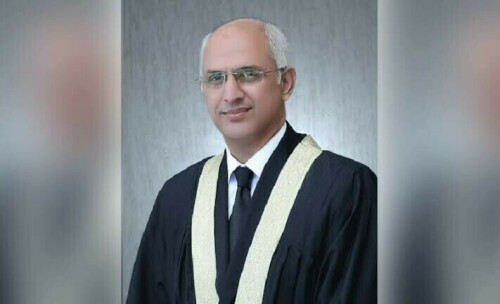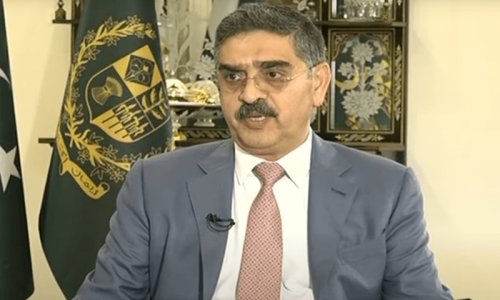ISLAMABAD: A larger bench of the Islamabad High Court (IHC) is divided over the handling of missing person cases of Balochistan, with two of the three judges dissenting from the senior puisne judge’s directive for an in-camera briefing from military and civil intelligence agencies on the matter.
At the last hearing, Justice Mohsin Akhtar Kayani had ordered officials of the Inter-Services Intelligence (ISI), Military Intelligence (MI), and Intelligence Bureau (IB) to provide a detailed briefing on the matter on October 31.
However, in a separate dissenting note, Justice Tariq Mehmood Jahangiri and Justice Arbab Mohammad Tahir questioned the IHC’s authority and jurisdiction for in-camera proceedings on security matters related to Balochistan.
Both members of the bench were among the six judges who, along with the senior puisne judge, wrote to the Supreme Judicial Council, complaining against meddling in judicial affairs by the intelligence officials.
Instead of intelligence officials, Justice Jahangiri and Justice Arbab ask to hear AGP on the matter
Led by Justice Kayani, the three-member IHC bench aims to uncover the involvement of the state in missing persons cases, and probe the security situation in Balochistan.
Justice Kayani’s order sought a comprehensive presentation on each case, including the circumstances of the disappearance, the state’s response and the feasibility of the prosecution or recovery. He also inquired about the long-term policy to address the issue.
Earlier, the bench had constituted a committee comprising officials of the three intelligence agencies. Justice Kayani ordered that the “committee notified shall give full presentation regarding security situation in Balochistan to this court through in-camera proceedings on the next date i.e. 31.10.2024 along with details of all other cases.”
He sought a presentation on “each case” with ground realities/allegations“, “mechanism adopted by security agencies”, “if missing person is not alive, written information be provided”, “possibility of recovery of missing person”, “possibility of criminal prosecution of alleged missing person”, “any mechanism for rehabilitation of captured terrorists/persons”, “cost borne by state in cases of missing persons”, “long-term solution/short-term solution”, “what is the establishment policy to tackle the issue of missing persons?”
Justice Kayani also directed the registrar office to arrange for the in-camera proceedings in the court, where only intelligence officials, law officers and defence ministry representatives would be present.
When the order, authored by Justice Kayani, was shared with Justice Jahangiri and Justice Arbab, both members of the bench opposed it.
The dissenting note states: “With utmost respect at our command, we are unable to subscribe the direction to the extent of conducting in-camera proceedings/briefing regarding security situation of province of Balochistan as the said territory is outside the jurisdiction of this court.”
Dissenting judges want to hear AGP
Both judges, however, stated in a note jointly signed by them that “we would like to hear the learned attorney general for Pakistan in the matter in light of the decision of the federal cabinet on the next date of hearing”.
The two judges were of the opinion that “under Article 90 of the Constitution, the executive authority of the federation is exercised by the federal government. The federal government consists of the prime minister and federal ministers, which acts through the prime minister who is the chief executive of the federation. The prime minister and members of his cabinet are elected representatives. They represent will of the people of Pakistan”.
The two members wrote, “We deem it appropriate that the matter be placed before the federal cabinet for consideration and its resolution.
“The federal government is expected to consider the matter and resolve the same within the four corners of law. The matter is directed to be placed before the federal cabinet for a decision in accordance with law, before the next date of hearing.”
They noted that when the constitutional framework was clear, “we expect the federal cabinet take a decision for resolution of the matter at once after obtaining input from the stakeholders”.
Published in Dawn, October 19th, 2024

















































